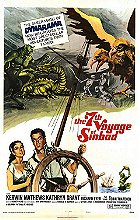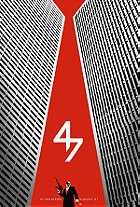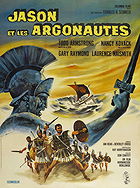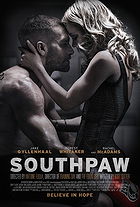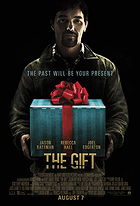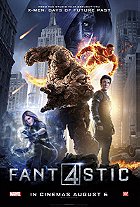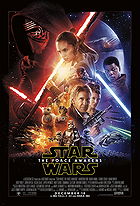From the moment that the iconic opening title crawl begins - accompanied by John Williams' exhilarating, iconic Star Wars theme - it's clear that 2015's Star Wars: Episode VII - The Force Awakens is in safe hands. With George Lucas stepping aside, Star Wars is finally being handled by filmmakers who actually care about the beloved franchise and know how to create genuine big-screen excitement. Ignoring all the prequel trilogy nonsense, The Force Awakens is more interested in recapturing the magic of the original trilogy, picking up thirty years after 1983's Return of the Jedi left off and bringing back familiar faces to kick-start a new slate of sequels and spinoffs. Under the watchful eye of director/co-writer J.J. Abrams, who also enlisted the help of The Empire Strikes Back scribe Lawrence Kasdan, it's a phenomenal nostalgia trip as well as an efficacious world-building exercise, and it genuinely feels like Star Wars in all the right ways.

Luke Skywalker (Mark Hamill) has vanished, and in his absence the tyrannical First Order have risen from the ashes of the Empire, led by the shadowy Supreme Leader Snoke (Andy Serkis). A critical piece of information pertaining to Luke's location is discovered, but Resistance pilot Poe (Oscar Isaac) is compelled to hide the map in his droid, BB-8, when stormtroopers destroy his ship and capture him. Finn (John Boyega) is a stormtrooper who feels disillusioned after his first taste of combat, breaking Poe out of his cell in the hope of escaping the clutches of the First Order. After crash landing on the desert planet of Jakku, Finn meets scavenger Rey (Daisy Ridley), who's in possession of BB-8 and feels determined to deliver the droid to the Resistance. Reluctantly teaming up, the pair soon encounter Han Solo (Harrison Ford) and Chewbacca (Peter Mayhew), who have tried to avoid getting involved in the fight against the First Order. Meanwhile, Kylo Ren (Adam Driver) leads a frantic search for BB-8, assisted by General Hux (Domhnall Gleeson).
Undertaking a project like The Force Awakens would be intimidating for any writer. On top of the obvious cultural significance surrounding the production, Abrams and Kasdan were tasked with bringing back old characters, introducing new characters, and establishing a fresh direction for this new trilogy. Hence, the script has ample baggage to deal with, so The Force Awakens does contain a fair amount of set-up that will likely pay off further down the track. Added to this, there is a certain degree of familiarity permeating the material; this is more or less A New Hope 2.0, borrowing elements of the 1977 hit which started it all, as well as aspects of the original trilogy in general. The film does threaten to come apart at the seams due to this, but The Force Awakens overcomes its noticeable shortcomings by concentrating on what matters most: compelling characters, focused storytelling, rousing action, and a sense of humour. There is more humanity here than ever before, with some worthwhile comedy to break up the drama that miraculously comes across as organic rather than cheap.

Abrams is renowned for his "Mystery Box" approach to moviemaking, determined to keep a lid on practically everything in an attempt to restore some of the sense of surprise that movies used to afford before internet spoilers and online gossip. What's particularly remarkable about The Force Awakens is that the returning characters have a bearing on the narrative at large, and they serve a purpose beyond the obvious passing of the torch. This is especially true of Han and his ever-dependable walking carpet, with Abrams ensuring the pair are vital participants in this story - and they also have a part to play in the overarching narrative leading into Episode VIII. Even more critically, Han feels like a three-dimensional character, as does General Leia (Carrie Fisher, who has aged surprisingly well), and their relationship does strike an emotional chord. Ford is an absolute joy to watch, with the aging thespian showing a surprising amount of enthusiasm throughout; he's effortlessly charismatic, and he's a believable man of action. The Force Awakens also finds time for effective fan service, with the characters here perceiving Han, Leia and Luke as legends due to the events of the original trilogy. (Heh, that's subtle.)
The new characters unquestionably work, which is a huge deal in the Star Wars universe, and I already look forward to spending more time with them in future instalments. And despite the strong sense of homage, there is far more nuance and depth to all of the fresh faces, who bely simple labels like "The New Luke" or "The New Han." What's interesting about Kylo Ren is that he's not Darth Vader; he's a disgruntled Jedi student who aspires to live up to the legacy of his personal deity, but lacks the skill and refinement to reach that level. Ren is more fallible than expected, and his character development is intriguing. Also remarkable is new droid BB-8 (an astonishing practical effect), who actually gives a better performance that most of the actors in the prequel trilogy. Through well-timed bleeps and bloops, and some expressive movements, the droid is able to convey humour, frustration, exasperation, excitement, and other emotions. In short, he's an absolute scene stealer.

Free of the acting vacuum that is George Lucas, the actors here are allowed to emote and express passion, carving out characters we can instantly latch onto. Choosing little-known thespians for Finn and Rey may seem like a calculated attempt to recapture the magic of the original trilogy, but both Ridley and Boyega convincingly knock it out of the park. Ridley is a thrilling screen presence, radiating welcome spirit and emotion, while Boyega can actually act. However, it's Isaac who ultimately steals the show as the pilot Poe Dameron, arguably the best new character. Almost effortlessly, Isaac makes one of those rarely-seen instantaneous turns from "good actor you've seen in a few movies" to "bona fide fucking movie star." Driver is just as promising, essaying a wonderfully nuanced villain, while British actor Domhnall Gleeson makes a great impression as General Hux. A handful of recognisable names do pop up who will presumably return in the future, but the film unfortunately wastes three cast members from The Raid, who aren't even given the opportunity to show off their insane fighting abilities. What was the point?
A large chunk of Disney's marketing campaign has revolved around addressing fan complaints towards the prequels, most notably in regards to the visuals. Indeed, Lucas lathered the prequels in an unholy amount of CGI, but Episode VII harkens back to the old-school approach, with a heavy reliance on practical effects and vast sets. Computer-generated imagery has undeniably reached breaking point due to overuse; blockbusters look too digital, with visual effects shots frequently coming across as workmanlike and phoney. But with a heavy element of practicality and tangibility to the action scenes, there's a level of excitement here that's seldom glimpsed in contemporary blockbusters. We have never seen spaceships look so vivid and utterly real, and it's often impossible to discern what's digital and what's practical. Above all, The Force Awakens is comparatively modest, with realistic physics, and at no point looks like a cartoon. Admittedly, there are a few motion-capture characters who do not look as impressive, including Snoke and Maz (Lupita Nyong'o), but this isn't not a deal-breaker - it's just that the puppetry and make-up is far more appealing. Furthermore, Abrams and cinematographer Dan Mindel elected to shoot on 35mm film stock to emulate the look of the original trilogy, affording a fine grain structure. Better, the picture has not been colour-corrected to death. And by mixing old-fashioned special effects techniques with the new, Abrams and his crew have not only created a film that's aesthetically similar to the original Star Wars trilogy - they have also constructed the most convincing, visually distinctive sci-fi blockbuster in recent memory.

Compared to the other entries in the Star Wars franchise, The Force Awakens does not have a great deal of lightsaber action, and any fans expecting plenty of heavily-choreographed fights will be disappointed. Ren only crosses blades at the climax, and with the budding Sith and his opponents lacking in training, the resulting battles are rawer than ever, on top of being full of humanity, and it's an utter joy to behold. Furthermore, there is no irritating shaky-cam to speak of. The Force Awakens also sees the return of composer John Williams, which is an exceptional touch. Williams' music is reliably grandiose, though it's perhaps not as impactful as it was in the original trilogy.
The Force Awakens was never going to please everybody. Star Wars fans across the world have already mapped out their dream Episode VII in their heads, and it is simply not feasible for one two-hour motion picture to fulfil millions of different mental checklists. No matter what, there was always going to be a contingency of disgruntled cry-babies. At the end of the day, The Force Awakens is not perfect, and falls short of delivering the same gooseflesh-provoking high that Star Wars provided in 1977, but it is a promising new beginning, an almost "safe" way to launch this new franchise on the right note to win back erstwhile fans and bring in a whole new generation of young viewers. It's accessible without being pandering, deep without being pretentious, and reverent to the original trilogy whilst still feeling fresh. Ultimately, we are now left hoping that Episode VIII will be the Empire Strikes Back of this new trilogy.
 Login
Login
 Home
Home 183 Lists
183 Lists 1663 Reviews
1663 Reviews Collections
Collections


 0 comments,
0 comments, 